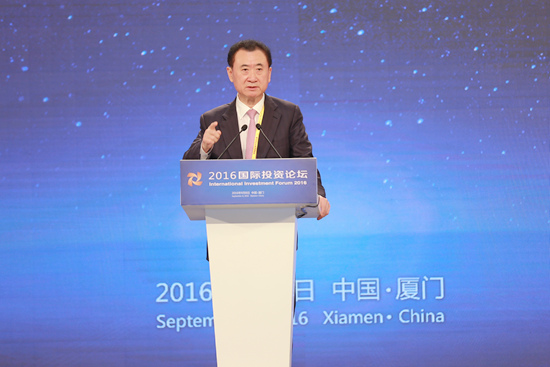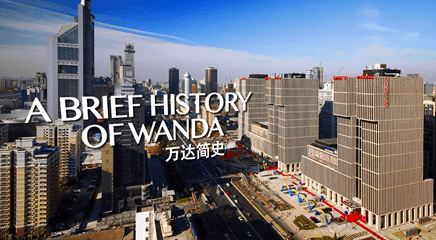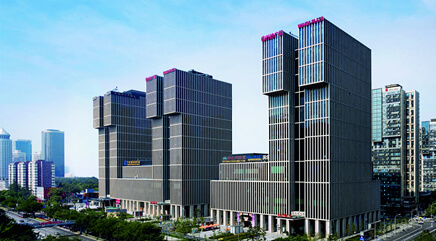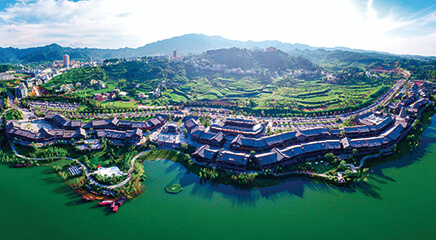Wang Jianlin: Tourism is the Best Investment
08.09.2016 Wanda Group Chairman Wang Jianlin made a speech at the Xiamen International Investment Forum of the 19th China International Fair for Investment & Trade in Xiamen on September 8, 2016.
Wanda Group Chairman Wang Jianlin made a speech at the Xiamen International Investment Forum of the 19th China International Fair for Investment & Trade in Xiamen on September 8, 2016.
Following is the transcript of Chairman Wang’s speech.
The title of my speech today is "Tourism is the best investment".
First, tourism investment is the industry direction of the State.
China has now arrived at the mid- to late-phase of "industrialization" and "urbanization". Hence, the likelihood of obtaining high returns, and good industries and regions for investment has become increasingly fewer. However, a considerable amount of investment is in fact still invested in traditional industries. Under these circumstances, therefore, what direction should investment take? One of the best directions would be to invest in tourism, which is in accordance with the national industry direction.
For example, China's per capita income is one-sixth that of the US. However, Chinese tourism spending is a mere one-fifteenth that of the US and one-twentieth that of Europe, while our spending on sports is only one-fiftieth that of the US. This is not significantly different when compared to our per capita income. Spending on tourism is still too low. Thus, the potential for investment and growth in this area is still enormous. In the first half of this year, China's investment slowed considerably, and fell to single digits for the first time. Some have even said that private sector investment has fallen off a "cliff". In the first half of this year, however, tourism investment grew 30% year-on-year over the same period last year, and most of this may be attributable to private sector investment.
Second, tourism investment is the most enduring.
There are a myriad of industries in which to invest. Many appear to be very good at the time of investment but after a few years, if research, and upgrading and renewal are unable to catch up, these industries may well be made obsolete. Those renowned enterprises that everyone wanted many years ago may no longer be found now. To maintain an enduring industry and a lasting enterprise is very difficult, but this characteristic is present in tourism; it is an enduring investment.
Let me give you two examples. More than 600 years ago, the Ming emperor developed Wudang Mountains, and for more than 600 years, the Mountains continue to be very popular. Here's the other example. Investment in Jiuzhaigou took place more than 30 years ago. The environment was amazing, and hotels and an airport were built. Tourist traffic has now become extraordinarily buoyant, and has even reached the point at which the number of tourist arrivals have to be limited. Tourism investment has a unique characteristic - the longer the investment time horizon, the more popular the brand, the higher the income.
Third, tourism is the most environmental friendly investment.
Like all investments, tourism investment requires the use of resources but a positive aspect of tourism investment is the one-time use of resources. The use of nature by the manufacturing and some other industries is continuous, with the use and capture of materials and land continuous and unceasing. Although tourism also uses resources, the frequency of their availability for use is high, and these may be used repeatedly. A reduction in carbon emission is currently being advocated around the world, and tourism may well be one of the industries for investment with the least carbon emission.
Fourth, tourism is an investment that will lead to prosperity.
To prove this point, I will give two examples: the first is an overseas example. The Gold Coast in Australia has 53km of fine sandy beaches. Its value was discovered more than 50 years ago, and investment began. A city gradually took shape, and a booming new city emerged purely as a result of investment in tourism. In 2015, the Gold Coast welcomed 21.6 million overnight visitors, or 8.3 nights per person. It is ranked among the "Top 10 tourism destinations in the world" for almost a decade, and has prospered a state.
Here's another example. Wanda developed the Changbaishan International Resort in Fusong County, Jilin Province. It is a project we invested and developed in the depths of forested mountains amidst rocks and valleys, a project we created out of nothing. This project helped Fusong County enter the Jilin Province GDP rankings, rising from the bottom few to the top. At the same time, it was precisely because of our investment in the resort and buoyant operations that Baishan city's GDP growth, fiscal revenue growth, services growth and other core economic indicator growth rates were ranked first in Jilin Province this year. The city was able to maintain such rate of growth in its economy and performed positively despite an economic slowdown in Northeastern China as a whole and against a general backdrop of negative growth; certainly, we were not the sole driving force behind the above performance.
Fifth, tourism is an investment that enriches the people.
There are plenty of large investments such as infrastructure investment; are they good? Of course, but the income received from these investments requires a process of transfer payments before it truly trickles down to the masses, and its implementation requires two to three rounds of distribution. Tourism is different. Tourism investment is an industry with the highest one-time distribution rate. Regardless of whether one serves as a tour guide or sells small merchandise, the money earned is directly deposited into one's pocket. Therefore, the one-time distribution rate is the highest, and the industry is best able to enrich a person. I will use Wanda's Changbaishan International Resort as an example again. This project has provided employment for at least 10,000 people, the bulk of which were redundant workers from the forestry industry. Their original income was a few hundred RMB per month, but after our tourism project commenced operations, these workers were able to earn at least Rmb3,000 per month with board and lodging provided. The project also led to the development of rural farmhouse vacations in the neighboring areas, and more people benefited as a result of this large project.
Therefore, I feel that tourism investment is an excellent resource alternative from both fiscal revenue and population enrichment perspectives. Naturally, this is definitely not the only option but at the very least, tourism investment still has enormous potential for growth in China, and is one of the best investments.
Owing to time constraints, I have only expounded on this theme. Thank you, everybody.






